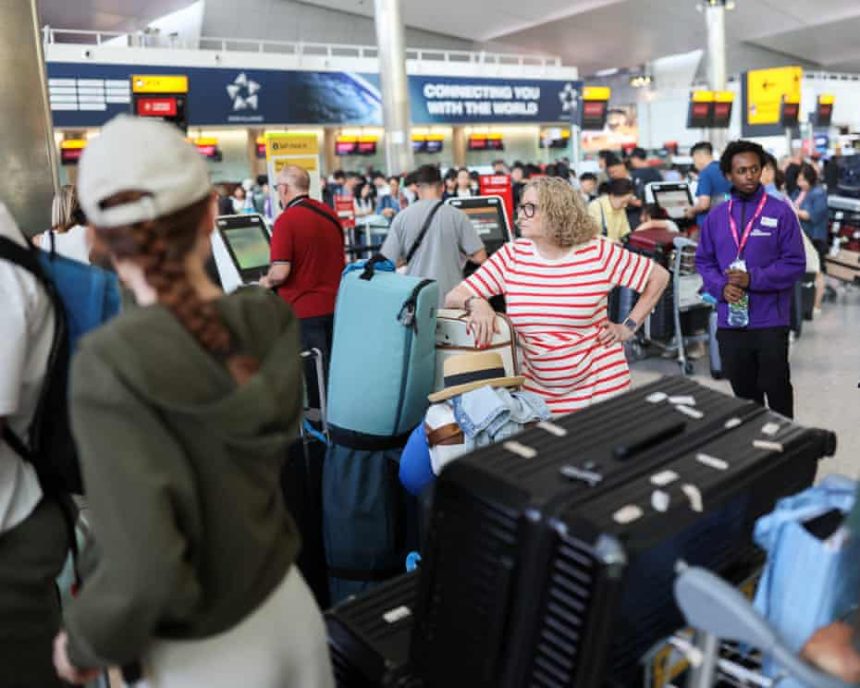The head of the United Kingdom’s air traffic control company, Martin Rolfe, is under increasing pressure to resign following another technical failure that led to widespread disruption of flights, just two years after a similar incident grounded hundreds of thousands of passengers.
On Wednesday, air travel across the country was thrown into disarray after the UK’s air traffic control system experienced a 20-minute outage, causing delays to hundreds of flights.
Nats, the company responsible for managing the system, cited a technical glitch, which it said has since been resolved.
The disruption immediately sparked concern of a repeat of the August 2023 chaos, during which a comparable technical fault led to mass delays and cancellations, affecting more than 700,000 travelers.
British Airways was among the worst hit on Wednesday, temporarily limiting its operations at Heathrow Airport to just 32 flights per hour, significantly lower than the standard 45. The airline expected to resume normal scheduling by 7.15pm.
Despite fears, the UK’s National Cyber Security Centre has ruled out the possibility of a cyberattack.
Ryanair wasted no time pointing fingers, with its chief operating officer, Neal McMahon, demanding Rolfe’s resignation.
“It is outrageous that passengers are once again being hit with delays and disruption due to Martin Rolfe’s continued mismanagement of Nats,” said McMahon.
“Yet another ATC system failure has resulted in the closure of UK airspace meaning thousands of passengers’ travel plans have been disrupted. It is clear that no lessons have been learned since the August 2023 Nats system outage, and passengers continue to suffer as a result of Martin Rolfe’s incompetence.”
He added that if Rolfe does not step down voluntarily, “then the transport secretary, Heidi Alexander, must act without delay to remove Martin Rolfe and deliver urgent reform of Nats’ shambolic ATC service, so that airlines and passengers are no longer forced to endure these preventable delays caused by persistent Nats failures.”
By late afternoon, Nats confirmed the affected systems had been restored and normal operations were in the process of resuming.
However, the temporary failure had already caused widespread ripple effects, limiting the number of aircraft allowed to fly in English and Welsh airspace, stranding crew and aircraft, and forcing several inbound flights into holding patterns or diversions.
Passengers at airports such as Liverpool’s John Lennon were advised to monitor updates from individual airlines, with delays expected to continue through the evening.
The source of the fault was traced to Nats’ control centre in Swanwick, Hampshire.
Transport Secretary Heidi Alexander acknowledged the situation, stating, “I am aware of a technical issue which impacted Nats’ operations causing travel disruption this afternoon. I have been informed systems have now been restored but continued disruption is expected, and passengers should check with individual airports for advice.”
In response, a Department for Transport spokesperson confirmed that Nats’ systems were “fully operational” and that flights were gradually returning to schedule.
“We are working closely with Nats to understand the cause of the technical issue and the implications for the resilience systems in place,” the spokesperson added.
While Alexander has offered assurances of coordination and review, the department clarified that she holds no direct authority over Nats’ staffing decisions.
